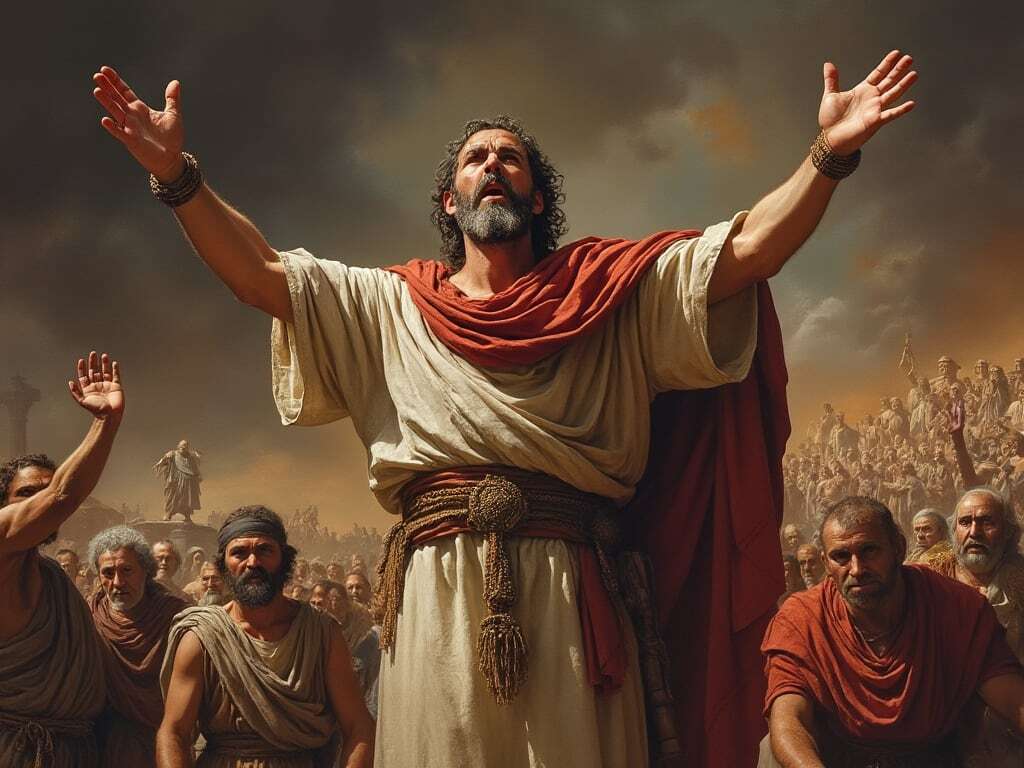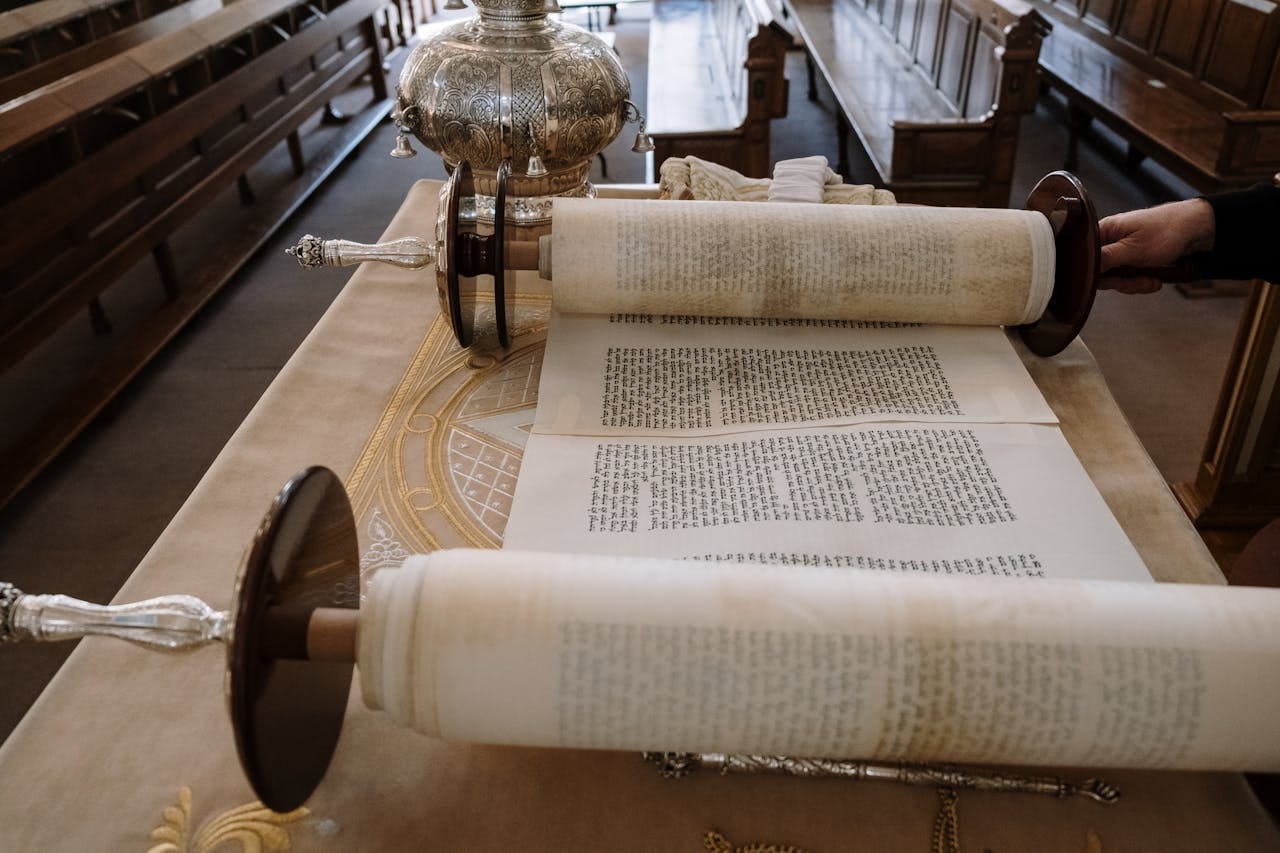The Bible, revered by billions across the globe, stands as a cornerstone of faith, morality, and human history. It is both a sacred text and a monumental literary work. However, one question has intrigued scholars, theologians, and believers for centuries: Who wrote the Bible? Here, we will explore where the Bible came from, who wrote it, and its historical context.
What Is the Bible? A Quick Overview
The Bible is a collection of sacred writings with two main sections: the Old Testament and the New Testament. It encompasses history, poetry, prophecy, law, and moral teachings. Across its many books, the Bible reflects a rich tapestry of authorship spanning centuries.
- Old Testament: Known in Judaism as the Tanakh, this section includes books such as Genesis, Psalms, and Isaiah. It primarily focuses on the history and covenant between God and the Israelites. Accordingly, the authors wrote in biblical Hebrew and Aramaic.
- New Testament: After Jesus Christ rose from the grave and ascended to heaven, people wrote the New Testament. In sum, it includes stories about Jesus called the Gospels, letters from church leaders, and the prophetic book of Revelation.
Did One Person Write the Bible?
Contrary to popular misconceptions, no single individual authored the Bible. Instead, numerous authors compiled it over 1,500 years. These authors were kings, prophets, fishermen, and apostles. They each brought their unique viewpoints and experiences to the table.
Who wrote the Bible? Old Testament
1. Moses – The Lawgiver
Moses wrote the Pentateuch, the first five books of the Bible: Genesis, Exodus, Leviticus, Numbers, and Deuteronomy. These books lay the foundation of Jewish law, history, and theology. However, Genesis contains information that pre-dates Moses’ birth. So, maybe God gave Moses this knowledge in a special way, or Moses put together his writings from stories that were told or written down before his time.
- Evidence of Mosaic Authorship: Both Jewish and Christian beliefs say Moses wrote these books, and there are parts in the texts that back this up.
- Challenges: Modern scholars point to stylistic differences and anachronisms, suggesting multiple contributors.
2. Prophets and Historians
Different authors composed the historical books, wisdom books, and prophetic texts.
- Historical Books: Scholars usually give credit to Joshua, Samuel, and Ezra for writing these books. However, there’s debate since some scholars think scribes and priests put them together much later on.
- Prophetic Books: Either the prophets like Isaiah, Jeremiah, and Daniel or their scribes wrote these. In sum, they pass on messages from God.
- Psalms and Wisdom Literature: King David and Solomon wrote many Psalms and Proverbs. Yet, scholars also believe that other writers added to these collections.
3. Scribes and Compilers
Over time, scribes compiled, edited, and preserved these writings. For instance, a lot of scholars believe that Ezra, who was both a scribe and a priest, took the lead in putting together the Hebrew Scriptures during his time in Babylonian exile.
Who wrote the Bible? New Testament
4. The Evangelists
The New Testament begins with the four Gospels: Matthew, Mark, Luke, and John. Each offers a unique perspective on the life and teachings of Jesus Christ.
- Matthew: A former tax collector and disciple of Jesus, Matthew wrote for a Jewish audience.
- Mark: Thought to be Peter’s scribe, Mark’s Gospel is concise and action-packed.
- Luke: A physician and companion of Paul, Luke also authored the Acts of the Apostles.
- John: A disciple of Jesus, John’s Gospel emphasizes his divinity.
5. Paul – The Apostle to the Gentiles
Paul used to hunt down Christians, but then he had a big change of heart. After that, he became a key leader in Christianity. All in all, he wrote 13 letters to early churches, like Romans, Corinthians, and Galatians, talking about faith and how to run a church.

6. Other Contributors
There is much debate over who wrote Hebrews. Traditionally, people thought Paul wrote it, but many scholars disagree because it doesn’t sound like his other letters. James, Peter, Jude, and John also wrote epistles. In addition, John wrote the vivid apocalyptic vision, Revelation, while exiled on the island of Patmos.
How Was the Bible Written and Preserved?
7. Writing Materials and Methods
Long ago, scribes used papyrus or parchment to write the first parts of the Bible. In time, they carefully copied these writings many times to keep them safe. All in all, their hard work and planning preserved the text, ensuring the accuracy of our modern Bible.
8. Compilation and Canonization
The process of canonization—deciding which books belonged in the Bible—spanned centuries. Jewish leaders largely settled the Old Testament canon by the 2nd century BCE. Moreover, Christian leaders finalized the New Testament canon in the 4th century CE.
9. Translation and Dissemination
Translations, like the Septuagint (Greek) and the Latin Vulgate, helped spread the Bible’s teachings. The invention of the printing press in the 15th century revolutionized its accessibility.
Historical and Cultural Influences
10. Ancient Near Eastern Context
The Old Testament influenced the cultures of Mesopotamia, Egypt, and Canaan. Indeed, tales like the Great Flood and the Ten Commandments are similar to stories in other old writings. In short, this shows that these stories come from shared traditions and a common view of history.
11. Greco-Roman World
The New Testament emerged during the Roman Empire, drawing on Hellenistic thought and Jewish tradition. The Greek language played a key role in its composition and dissemination.
Theological Perspectives on Authorship
12. Divine Inspiration
Many believers acknowledge the Bible as divinely inspired. This means that while human authors physically wrote the text, God guided their words.
13. Multiple Authors, One Message
Even though many different people wrote the Bible, it still has one main message about being saved, love, and how God and people get along.
Modern Scholarship and Debates
14. Documentary Hypothesis
The Documentary Hypothesis says that different people wrote the first five books of the Bible, not just Moses alone. This theory has sparked debate among scholars.
15. Archaeological Insights
Discoveries like the Dead Sea Scrolls have illuminated the Bible’s origins and confirmed the accuracy of many ancient texts.
16. Textual Criticism
Textual criticism studies differences in manuscripts to reconstruct the Bible’s original wording. Firstly, this process underscores the Bible’s reliability. Second, it allows critics to present an unbiased scientific case. Most important, it gives a broad picture of how the original words have been preserved. Finally, it allows everyone a chance to see all sides of tangible pieces of the Bible’s history in their original state.
Why Does It Matter Who Wrote the Bible?
17. Authority and Trustworthiness
Understanding the Bible’s authorship can strengthen faith in its teachings and credibility. Above all, it is important to know that God inspired the human writers. In sum, that means that what they wrote came from a perfect source of truth.
18. Historical and Cultural Legacy
The Bible has a big effect on art, books, laws, and how we decide what’s right or wrong. It really shows why knowing where it comes from matters. Clearly, the Bible has made a mark on Western culture for a long time. Conversely, missionaries in many places in the East have to teach the Bible secretly due to bans. However, their work has been effective and the Bible has made an impact in the East as well.
19. Personal Connection
For many, knowing who wrote the Bible deepens their connection to the text and its messages. It may also strengthen their faith and help them get more context.
Common Misconceptions About Who Wrote the Bible
20. “It Was Written All at Once”
The Bible’s composition spanned centuries, involving various cultural and historical contexts.
21. “It’s Entirely Literal”
Genres like poetry and allegory add depth to its teachings and are not for literal interpretation. However, much of the Bible is literal history.
22. “King James Wrote the Bible”
No, King James did not write the Bible. King James I of England authorized an English translation of the Bible in 1604. All in all, it took 54 translators seven years to complete.
FAQs About Who Wrote the Bible
1. Who wrote the Bible according to Christianity?
Moses, David, the prophets, and Jesus’ apostles are among those who wrote the Bible through divine inspiration. Still, scholars debate who wrote each of the 66 books. Yet, most books have both a traditional author and near agreement on the most likely candidate.
2. Is the Bible historically accurate?
While the Bible isn’t all proven true by science, archeology confirms many parts. For instance, most scholars denied the existence of Hittites. Yet, now we know they did exist and thrived in the Levant.
3. Why are there different versions of the Bible?
Various translations and denominational preferences account for differences in wording and content. In addition, there is no copyright on the source material so there is a financial incentive to make new versions of the Bible. For instance, there is a Trump-backed “God Bless the USA Bible” that contains some of the United State’s founding documents.
4. Did Jesus write any part of the Bible?
No. Jesus did not write any part of the Bible, and the disciples and other witnesses recorded his teachings.
5. Are there lost books of the Bible?
Several ancient texts claiming to be gospels did not make it into the Bible. For instance, the Gnostics likely wrote the Gospel of Thomas long after the lives of Jesus and Thomas.
6. What is the oldest part of the Bible?
Since Moses wrote the first five books he could have started anywhere. However, it makes the most sense that he started with Genesis 1:1, in the beginning. Moreover, the book of Job could date toward the end of Genesis.
Conclusion
Learning about who wrote the Bible is like piecing together a big, colorful puzzle of history, belief, and the way people lived long ago. Here’s how it goes:
First, God chose different people, like Moses and John, to write down the stories that would become the Bible. This means that these writers didn’t just make up the stories; they were inspired by God to tell us about how He connects with people.
Next, because the Bible is such a special book, people have been studying it for ages. The stories in it have touched many lives and are still important today.
Also, when you look at the Bible, it’s not just one book but many books put together. Each part has its own style and message, but they all work together to show us God’s love and teachings.
So, the question of who wrote the Bible is not only interesting, but also important for learning about our past, our faith, and how we should live today.
